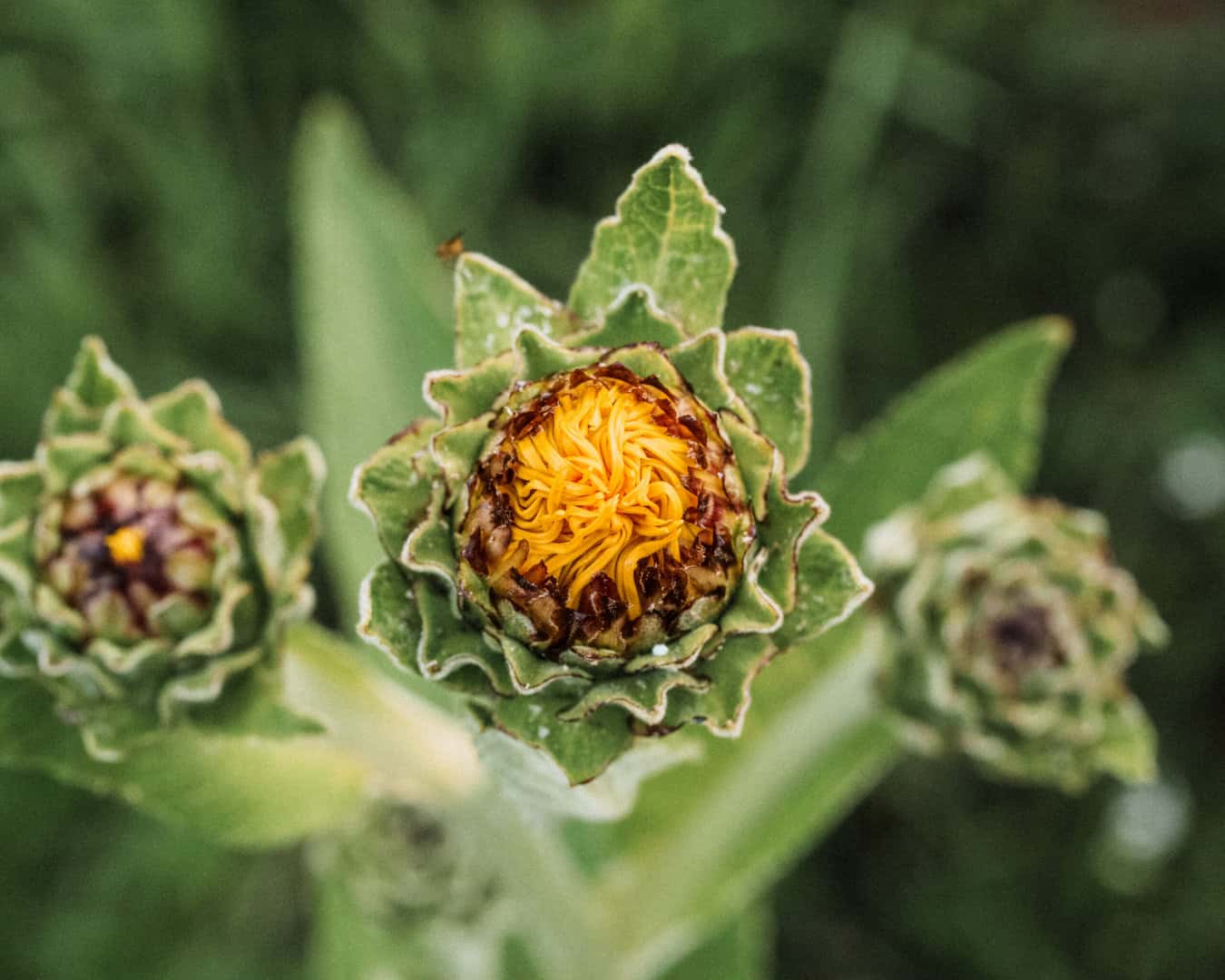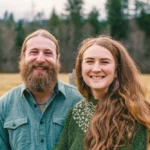In this post, I’m delving into a concept that has been on my mind for the past few months. I call this concept “diagnosis identity,” and it’s about the nature of the human condition, the role of suffering in our lives, and how we navigate it. It’s about what we choose to do with suffering and illness, and a call to rise above our suffering, learn from it, and ultimately not allow it to take over our lives and become a part of our identity.
In this piece, we’ll explore:
- Why suffering is both inevitable and potentially transformative
- The difference between trauma and the normal struggles of life
- The cultural trend of over-identifying with a diagnosis and how it can become an obstacle to healing
- The alchemical idea of transforming poison into medicine
- A vitalist approach to healing through strength, forgiveness, and meaning
- How practitioners can spot “stuck” cases and support deeper transformation
Table of Contents
Suffering is Part of the Human Condition
As herbalists, healers, physicians, and practitioners, our primary goal is straightforward: to help alleviate suffering in our fellow humans (or animals, as the case may be). As vitalist or holistic practitioners, we may want to go further, not only relieving suffering but also helping people build health, vitality, and promoting longevity. We aim to help clients achieve symptom-free living and a healthy life, where they develop resilience within their bodies as well as in other aspects of themselves. From here, our medicine is not only healing, but utilizing herbs in a way that is both preventative and rejuvenative at the same time.
My approach is based on the model I call Evolutionary Herbalism. To me, it’s not just about working with the plants to alleviate suffering. Nor is it only about preventing disease or rejuvenating health. It’s also about using plants to aid in our spiritual development, psychological clarity, and emotional well-being. My ultimate goal as an herbalist is to support emotional stability, buoyancy, and a perceptual orientation to life that allows individuals to draw meaning and experience growth within themselves. This enables individuals to make a positive contribution to their family and community, leading to a fulfilling life. I think it’s important to feel that we can look back from our deathbed and feel proud of a life well-lived.
If there’s one thing I think we can say is true about life, it is that suffering is inevitable. No matter who we are, where we come from, our creed, race, socioeconomic status, etc., we will suffer. We will encounter challenges in this life. Difficult and even bad things will happen to us at times. Navigating life’s challenges will become challenging, and we might get depressed, anxious, or confused about what to do about it.
Many traditions, cultures, and religions hold that this might be one of the most fundamental and universal truths about life. Buddhism clearly states that suffering is an inevitable part of life. In the Western Judeo-Christian religions, Adam and Eve committed the original sin and were kicked out of Eden. God told Eve that she and all women thereafter would suffer in the birthing and rearing of children. God also told Adam that he and all men thereafter would suffer in that they must sacrifice the present for the sake of the future… they must work.
Indeed, we will suffer in this life, but we will also experience joy, love, laughter, and inspiration. From a cosmological perspective, I think of it as being only through suffering and struggles in this life that we can come to know the other side. We can truly appreciate peace and order, as well as joy and moments of happiness, when they are juxtaposed with their opposites: chaos, struggle, challenge, and the unknown.
Everything in this life, from a cosmological perspective, exists within the realm of duality. Light cannot exist without darkness. I believe the same is true within our own lives and human experiences. Especially if we’re on a healing path ourselves, we want to help other people. We may take on some of the suffering of the people we work with. We have to deal with that fact when we’re dealing with other people’s suffering—it can weigh on us.

The Overmedicalization of the Human Condition
I have noticed something occurring in the modern world we live in—the overmedicalization of the human condition. Meaning that people are commonly taking the challenges of life and medicalizing them. Suffering is inevitable. We’re going to have a hard time, but does that necessarily mean it’s a medical problem or a psychological disorder? Does it mean that every uncomfortable experience, every life struggle, every challenge we face necessarily needs to be classified as trauma?
The word trauma is used extensively these days. I find myself talking about trauma, too. I discuss the importance of transforming trauma in our healing process and spiritual development, as it relates to our evolutionary process of healing. But I think defining trauma is essential. I think we need to clearly understand and make a distinction between experiencing a truly traumatic event and facing the struggles of life, which is a part of the human condition that we all encounter in some way, shape, or form.
Defining “trauma” is important because this is a word that is thrown around a lot these days about things that, in my opinion, and probably in the professional opinion of psychologists and psychiatrists, wouldn’t technically be classified under the category of “trauma.” The truly traumatic experience is much more than mere emotional upset, getting into an argument or a conflict with a friend or a coworker or a family member, getting fired from your job, or someone saying something offensive to you.
I’m not belittling these experiences. I’m not saying these are not challenging to navigate. Experiences can be stressful, hurtful, impactful, but I’m not sure they would qualify as “traumatic.” An actual trauma is something that touches as close to the essence of who you are as something could reach. It’s a wound that touches close to your essence within your heart. Trauma is something that doesn’t easily shake off you for many years after the event. A trauma is something that may have happened a long time ago and continues to affect you.
According to the American Psychological Association, “Trauma is an emotional response to a terrible event like an accident, a crime, natural disaster, physical or emotional abuse, neglect, experiencing or witnessing violence, the death of a loved one, war, and more. Immediately after the event, shock and denial are typical.”
I think it is important to distinguish between trauma and difficult life events. What I’ve noticed is that people may struggle in life, perhaps get offended by something, or get into an argument, and life starts challenging them. And then that can get labeled as a “trauma,” and it turns into an excuse for all of someone’s problems. It all comes down to this one situation, which may not be as significant as they’re making it out to be. I’m not suggesting that our problems aren’t real or significant, but there’s a danger in the overmedicalization of the human condition. We have to be a little bit careful about using terms like PTSD.
My sister-in-law is a high school teacher, and she says that many of her students say they have “PTSD” from having to be at home during the COVID lockdown. I was thinking about that, and I was perplexed. PTSD is a strong term. True PTSD happens to people who survive a war or experience rape or abuse or neglect, or psychologically damaging things. Not being able to hang out with your friends socially at school—I don’t know if that’s in the same category of events as those that cause PTSD. Sure, being in lockdown was stressful and uncomfortable in many ways, but traumatic?
What I notice is that rather than developing a strength of character to overcome the challenges that life presents, there is a tendency to label life challenges medically and resort to seeking medical treatment that may not be appropriate. It can also become a scapegoat where one’s problems are labeled and people say, “I’m this way because of that situation. It has traumatized me, and there’s nothing I can do.” A victim mentality can emerge. This is dangerous territory because it’s a psychological trap that one can fall into, leading to being stuck in one’s life and incapable of moving forward, maturing, and finding solutions to the problems we face.
Life will challenge us. Like I said, life is suffering. Life challenges happen. But that’s a good thing because that’s how we grow. That’s how we learn. That’s how we become better people. That’s how we grow in our knowledge, wisdom, and understanding by learning how to navigate life’s challenges.
I am saying all of this because ultimately, I want people to be healthy physically, mentally, and emotionally, and I don’t deny that the healing of trauma is important and requires a multifaceted approach. But I think if you find yourself constantly focusing on your problems and in a state of blame on past events, on people, on situations, on the culture as a whole, and saying it’s all trauma, I’m not sure that’s a healthy approach especially if it results in your feeling disempowered. I think it’s essential to step back and genuinely ask yourself if those are truly traumatic events or if they’re simply life’s challenges and a part of the human condition. And if so, how can you best navigate and change your perceptual orientation on things?
I believe a significant aspect of this comes down to forgiveness. I believe we must learn to forgive ourselves and to forgive others. I think we need to learn how to brush ourselves off and move on, move forward, be strong, get the help we need (if we even need it), and develop a mode of seeing things and reflecting on life’s events through asking ourselves, “What is this trying to teach me? What can I learn through this? How can I turn this into a positive experience?” That’s ultimately what challenges represent to us, that we have to learn how to focus on the solutions and not get myopic on the problems. The more we focus on problems, the more we create new ones.

The Problem of Diagnosis Identity and Transforming Poison into Medicine
In the alchemical tradition, there’s a concept of transformation. There’s a spectrum and a polarity of poison and medicine. Especially the higher alchemical works involving minerals and metals involve taking what is, on its own, a very crude thing—a poison, such as Antimony—and through proper handling, care, and laboratory processes, transforming it into a universal medicine, a panacea. One of the most potent poisons can become one of the most powerful medicines if it is prepared and dosed correctly.
I think this is symbolic of our psychology. Through proper handling and preparation of our traumas and struggles, as well as the hard times we’ve gone through, we can learn how to process them properly, much like how we process materials in laboratory alchemy. We can learn how to process, prepare, and dose it (and avoid overdosing on it). A little bit at a time, we can process it correctly and transform it into a medicine, into a gift. And I think that’s a good way of thinking about it. Rather than blaming all our problems on the past, we can transform our perception of it. We can engage in a healing process involving forgiveness, which is a powerful medicine. Ultimately, what was once a poison or a negative thing can become a positive thing because it has taught us something, made us stronger, more resilient, and more aware.
There is the adage of whether the glass is half full or half empty. It depends on how you look at it, and I think the same is true for the struggles we face and the traumas we experience. If we learn how to look at it the right way, we can extract good.
This leads us to the concept of “diagnosis identity,” which I think is a part of this discussion, but it can also be broader in scope. There is another thing I’ve noticed happening in the culture right now, which, to me, is a little alarming from a psychological perspective. That is the concept of diagnosis identity, which essentially occurs when, for instance, you have a health problem and you visit the doctor. The doctor tells you that you meet all the diagnostic criteria for this disease, and they give you a diagnosis. You have hypothyroidism or cancer, or you have lupus, or depression, or PTSD, or whatever it might be.
This can be a physiological, psychological, or emotional diagnosis. For some people, this diagnosis can become entangled with their identity. The disease or the sickness or the problem becomes so enmeshed with their sense of self, with their understanding of who they are, that a part of them clings onto it.
What’s more alarming is when this happens from a self-diagnosis. This is one of the problems with Google: people sometimes search for their problems on the internet, but they don’t receive an official medical diagnosis. Instead, they make a self-diagnosis based on Google, and when a diagnostic label becomes something that you’re identified with and entangled with, it can affect your sense of self. This is a particularly dangerous situation because it becomes an obstacle to a cure.
I’ve had to work through this with clients before, where they don’t take the necessary steps to heal themselves. It can be a compliance issue—they don’t follow the protocol I offer. They claim to want to do this, but then they fail to follow through on their intentions. And then, when you dig into it and look at it, you have to ask if they really want to heal. What part of them is clinging to this diagnosis? After teasing that out, you realize, whoa, a part of their self-definition is tied to this diagnosis. “Hi, I’m so and so, and I have Hashimoto’s disease and narcolepsy,” or “I can never do that because of my social anxiety.”
The whole world begins to revolve around that diagnosis, in a negative way. In a non-solution-seeking way. For some reason, it seems that in modern culture, many people are excessively celebrated based on their shortcomings, traumas, health problems, and psychological issues, rather than being celebrated for their positive virtues and characteristics. People often overexemplify and identify with their issues due to an underlying need for attention or sympathy, or a desire for special treatment, and in some instances, as a means of manipulating others.
Please don’t misconstrue what I’m saying. People have real problems. People genuinely do suffer. When people get a diagnosis, it can be terrifying. Getting a cancer diagnosis—that’s a scary thing, that’s a psychological and emotional blow. That is a major challenging moment in one’s life, to be sure, I’m not doubting or denying that. I’m not saying people don’t suffer or that people don’t deserve or shouldn’t receive compassion or sympathy. I’m also not saying we should just ignore our problems—obviously, that’s not a good approach.
What I am saying is that you can’t over-identify with your disease or with your health problem. You cannot allow it to become a part of who you are. You must learn to cultivate a way of seeing it as an obstacle to overcome. You have to be able to see beyond it, and I think that’s where the role of hope and faith comes into our healing process, that we have to be able to see the other side of it. We can’t get too lost or scared. We can’t get too worried, anxious, or depressed about it. Because what happens is that now it has power over you, and that’s a deep, dark hole. I think there is a psychological process that occurs when we receive, especially very serious diagnoses. We have to learn how to navigate that territory. We must learn to fortify our minds so that we do not fall into the dark pits of despair, hopelessness, faithlessness, fear, worry, and anxiety. Indeed, those things can emerge, but we must learn to overcome them. We have to become strong, and I think that strength is what enables us to overcome these types of challenges.
To be clear, I’m not saying to rely only on hope and faith alone to overcome your health problems. I think it’s necessary to address things from a multifactorial approach. But what I am saying is that if your identity is wrapped up in your diagnosis, it’s going to be difficult to heal it. Because if you heal it, then who are you? There’s a part of the self that latches onto the diagnosis and doesn’t want to let it go because if the disease is healed, if the problem is cured, and your identity is wrapped up in it, then you have an identity crisis. “Who am I if I don’t have my chronic migraines anymore and get the sympathy and the days off work, and the paid sick leave?”
There are ways in which our health problems can become a crutch. They can become a subtle means by which people can manipulate others. I’m not saying everybody does that, but it does happen. Perhaps you know someone who has experienced this as well. So, when you let your disease have power over you or when you over-identify with it, you can create something that gets in the way of your healing process.
I believe we must cultivate a perspective and discover a part of ourselves that trusts and believes in the intelligence of our body, the intelligence of nature, and the intelligence of our mind. We need to develop the capacity to self-regulate and heal ourselves. We can envision life beyond our problems, whether that involves dealing with trauma, overcoming a life challenge, or coping with a chronic disease.
Hope and faith, I think, play a critical role here. Research has been done on this. For example, in people who receive a terminal diagnosis of cancer, those who have faith and engage in active visualizations and affirmations, or attend church and pray about it, or seek traditional healers for treatment, can see beyond it. Those people tend to heal. Or, they live far beyond their life expectancy, and they blow their doctors’ minds, and people say, “How is it that you’re living 10 years later when you had a one-year life expectancy?” Whereas the people who don’t have hope, and become pessimistic and fall into the depths of despair, tend not to have those types of results.
And yet, some diseases cannot be cured. Sometimes life truly is not fair. In these instances, life does indeed need to adapt to the presence of the disease. Perhaps you’re crippled from multiple sclerosis or Lyme disease. Then we are left with a choice. Will we somehow learn to adapt? To morph our psyche in a way that accepts our circumstances and still live a good life? Or will we fall into our own personal version of hell that’s perpetuated with bitterness, resentment, and despair?
It’s a complex topic to discuss, as it raises sensitive issues that may trigger emotional responses in people. But maybe that’s something worth exploring. If what I’m saying triggers you, perhaps there’s something here to examine and understand.
I think this is something important for practitioners to be aware of in the people they work with. If you’re experiencing numerous compliance issues, if a person doesn’t seem to recover, if it appears that a part of them is holding on, that needs to be examined. These can turn into complicated situations because, in some way, people can benefit from being ill. I’m not saying everyone does that, but it does happen.
The transformation of poison into medicine is a crucial dynamic for us to consider, both as practitioners and as humans. You have your suffering, you deal with it, but how can you turn it into something positive? Maybe it happens for a reason. We may not deserve it, it may not be fair, but it doesn’t seem like life operates in terms of fair and unfair. Life is mysterious, and perhaps we receive what we need to learn, grow, and evolve mentally, emotionally, spiritually, and heal physically.
I believe we live in a world filled with meaning, and I think that everything we experience in this life has meaning. The challenge lies in extracting the most meaning if we learn to look at it the right way. So everything is here to teach us something about ourselves. And therein lies a secret, a truth, a power that we can extract something positive, that we can move beyond what’s on the surface and penetrate the essence to draw upon something good.
We’ve all heard about people who have gone through horrible, traumatic events. The two children whose father abuses them—one grows up to beat his kids, and the other grows up and is an amazing, loving father, and never strikes his children in anger. What differentiates those two people? There’s probably a lot, but I think in the one that turns the pattern around, there’s an inner resolve he comes to, not to repeat the pattern. Perhaps he grows up and is there to help other children who have gone through traumatic experiences. There are stories of women who are raped and go on to heal that trauma and support other women who are struggling with similar traumas. They take something horrible and turn it into something good, often by helping people struggling with a similar issue.
So, rather than our disease, our suffering, our trauma having power over us, being able to define us, we’re rising above it and finding the gift that is hidden within it. I like to think of this as the old saying, ‘the blessing in disguise.’ Hard to see it. But having faith and belief, as well as something greater than ourselves, helps us cultivate this perspective, allowing us to see things from a higher vantage point. We see it outside of our own story and the greater archetypal story that exists. We see it in a new light. We see it through the eyes of the other people involved in that event. Maybe we learn to forgive and have compassion for them, too. I believe that cultivating faith is essential to our healing journey. So that we can live in accordance with our purpose and lead a life not overly focused on necessarily being filled with happiness, but rather one filled with meaning. I believe a life filled with meaning has more depth and is richer than one simply filled with happiness, because suffering comes and goes, and happiness comes and goes. However, meaning and the ability to extract it from our experiences are qualities that we can continually cultivate.
So what’s the bottom line?
- Don’t overly identify with your disease, suffering, or diagnosis (especially self-diagnosis).
- Don’t mistake the standard struggles of life with traumas
- Don’t overmedicalize your unique human condition
- Don’t be weak. Be strong. Overcome your challenges. Do not fall into the pits of despair, bitterness, resentment, and blame. Take responsibility for your life.
- Consider what life is trying to teach you through your challenges. Do not run away from those life lessons. Do not suppress them with drugs, alcohol, or even suppressive prescription drugs. Face reality.
If you’re still reading this, thank you. I share this all from my heart because I genuinely want people to be healthy and thrive. Sometimes, I notice things happening in the world and our culture. I hear things that concern me, and I want people to be well. I want people to be emotionally, psychologically, spiritually, and physically healthy and vital. This has been on my mind for several months, and I’ve been contemplating how to discuss it.
Perhaps some people will get offended or say that I’m not seeing it correctly. Perhaps that’s true, but these are my thoughts on the topic, and I hope they are helpful to you. Maybe I said something that resonates with you and will help you overcome a challenge or find healing. Hopefully, it enables you to forgive and move on, and hopefully it helps you be strong and see things clearly.
If you’re a practitioner, it may provide some insight into those challenging cases, particularly individuals who just don’t seem to be getting well, aren’t compliant, or for some reason, seem like they don’t want to get well. Perhaps this can offer some insight and provide a topic for discussion with your clients. I just hope this serves you well. Thank you very much for reading to the end. Hopefully, you found some insight, hope, encouragement, faith, and the courage to heal.








